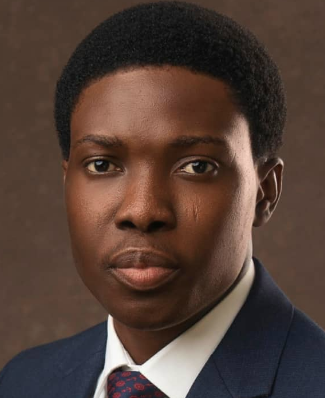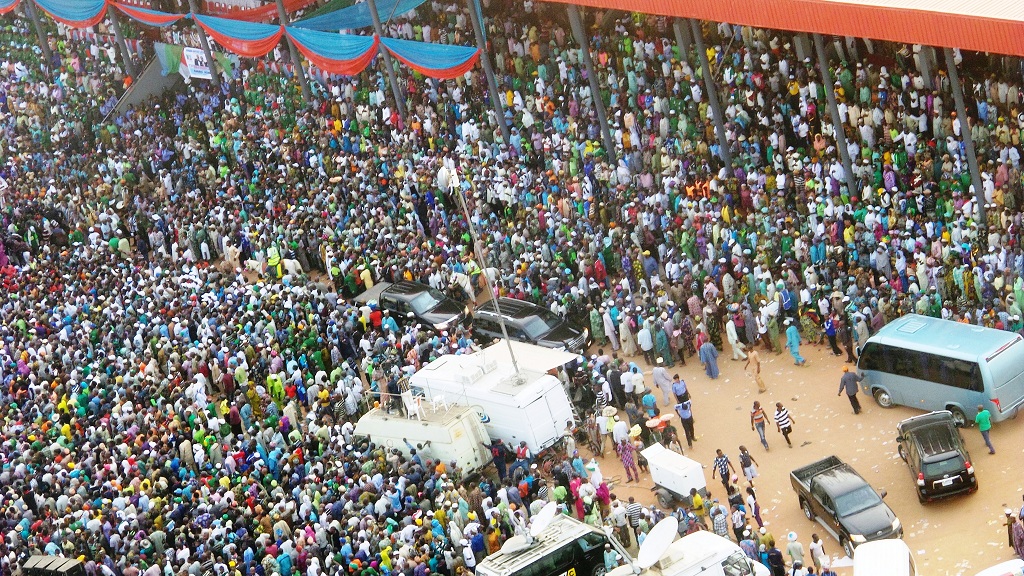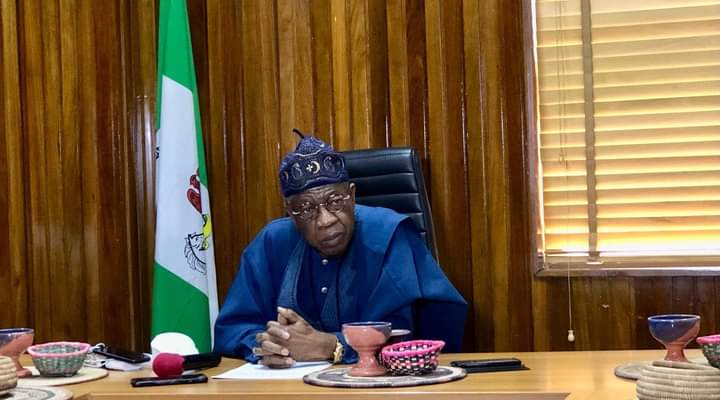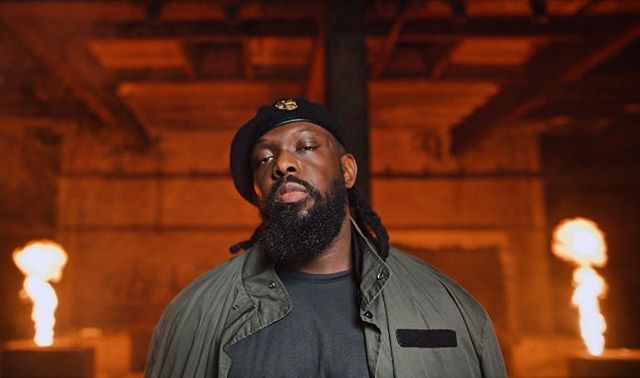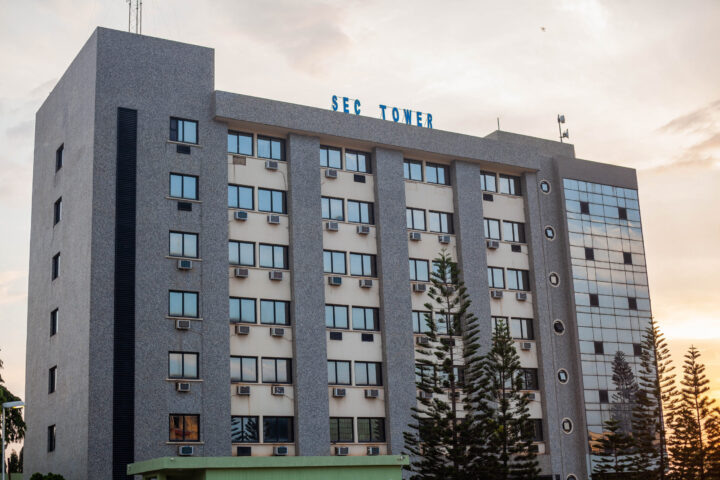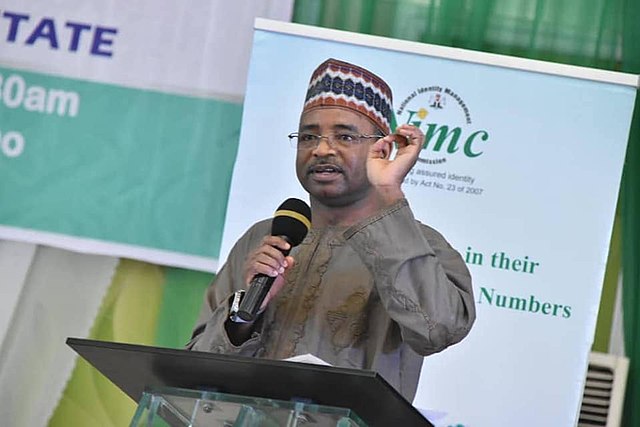Mammoth crowd at the presidential campaign rally of the All
Progressive Congress (APC), at the Osogbo City Stadium on Wednesday
15-01-2015
Nigeria is the world’s most prominent black nation and Africa’s largest economy, debatably. However, it is also ranked one of the world’s poorest nations, with over 40% (83 million) living in abject poverty.
For decades, the nation has battled Polio, HIV/AIDS, Meningitis, Ebola, and the more recently, the Coronavirus. With funds being routinely insufficient, its healthcare system is one of the most poorly funded globally.
This underfunding and poverty largely explain why millions of Nigerians have limited or no access to quality healthcare. In a 2021 piece, the founder of FlyingDoctors, Dr. Ola Brown, said, “Poverty tends to increase the need for healthcare whilst simultaneously reducing the ability of African countries to pay for it.” It’s a startling dilemma. Those who need healthcare the most can’t have it.
With millions of Nigerians living on less than $1 per day, our ailing healthcare infrastructure warrants that the same impoverished people fund their medical costs from their meagre means with no external support.
Advertisement
There are more cases of Nigerians unable to pay for proper healthcare than in neighbouring Ghana. We could call it an irony if we considered Nigeria’s 201 million population against Ghana’s 30 million.
This ratio reveals that only 2% of Nigeria’s population lives on $3,650 per year, while Ghana’s is estimated at 16%. Economically, Nigeria seems to be at an advantage. However, Ghana has a higher rate of citizens who are financially capable of paying taxes and footing healthcare bills. Ideal economies fund their healthcare system from taxes. But from the Nigerian scenario, how can citizens afford to pay tax when they can barely feed?
Poverty is a major limiting factor but not the only factor. There’s more below the ice.
Advertisement
The multifaced healthcare challenges in Nigeria
Nigeria has qualified doctors and health personnel in the thousands but is still grappling with a massive labour shortage. Going by the Global Goal, each nation should have one doctor per 1,000 persons. Nigeria will have to produce 200,000 doctors to cater to its teeming 200 million populace to meet this mark. For us, the ratio is dropping to 3.8 doctors per 10,000 people or 0.38 doctors per 1,000 people. Even if our universities manage to produce this many doctors, the majority quickly export themselves and their services to climes that “appreciate them.”
Healthcare workers’ welfare in Nigeria is appalling. Doctors and other healthcare workers are grossly underpaid and go unpaid for months in dire cases. In a 2001 Declaration, African heads of state unanimously agreed to allocate 15 percent of their national budgets to healthcare. Over 20 years later, the Nigerian Government has successively allocated only 10 percent of its annual budget to healthcare.
If we were to compare, the US Centre for Disease Control’s budget was $11 million in the previous year. That’s $33 per citizen. On the other hand, Nigeria’s is $0.02 per citizen.
Advertisement
Asides from their basic salaries, health workers in Nigeria hardly get paid their ancillary benefits. Even when they get it, it is often after many needless bureaucracies. According to a 2020 Global Citizen survey, a pharmacist at a public hospital in Lagos lamented, “It was stated that healthcare workers would be paid an additional 50% of their basic salary plus extra 20% for frontline workers. But a specific amount of money was not stated in the news by the health minister, and nothing has been implemented.”
Per the report, health workers barely get the promised hazard allowances, and if at all, it suffers terrible delays. This, among other factors, has sent our healthcare professionals into a frantic escape from the country at the slightest opportunity. Today, a sizeable percentage of doctors and nurses in the United Kingdom and the United States are directly Nigerians or have Nigerian origins.
Another impedance to Government’s action is the illusion fueled by inaccurate data. As you read this, Nigeria still depends on manual data collection and recording methods, which is relatively slow and unreliable given our current realities.
Although there are pockets of development here and there, progress is still at a snail’s pace. There are often considerable disparities in the results published by government and international bodies. When institutions that should be collaborating cannot see eye-to-eye on data, how do we get the required synergy to create change?
Advertisement
If we must see improvements, then those at the helm of affairs must be willing to see it happen. Grassroots action and civic activism will remain relevant. But the most sustainable impacts will happen at the policy level. This is why Nigerians must be intentional about who they elect into office come 2023.
It’s all our fault
It’s election season again. Nigerian leaders—past and present—have mastered the art of spewing juicy but empty promises at citizens. Since it takes two to tango, the electorates are also faulty when they elect leaders who have shown a track record of failure.
Advertisement
According to a famous quote often misattributed to George Orwell, “A people who elect corrupt politicians are not victims…but accomplices.” We are part of the problem just as much as our leaders are.
Over the decades, we Nigerians have compounded our troubles by our laxity to probe the true intent of those we elected to represent us. And like a lamb led to the slaughter, we accept their failure and incompetence hook, line and sinker.
Advertisement
Speaking during the Universal Health Coverage Summit, former Senate President Bukola Saraki urged Nigerians to interrogate prospective leaders running for offices in the 2023 election on their plans for healthcare.
In his words, “Very soon politicians will soon start campaigning to be President or Governor. Nigerians must ask them: ‘What are your plans for Universal Health Coverage?’ and ‘How do you intend to achieve it?’ When the time comes, the answers to these questions must be considered by the electorate.”
Advertisement
Saraki, who recently declared to run for the Presidency, will also be subject to his very words in the coming days; if Nigerians choose to look beyond stomach politics and fight for the future we want.
Why Nigerians must question electoral candidates
Nigeria is in dire need of a functional healthcare system that can cater for citizens regardless of class. We cannot continue to celebrate ribbon-cutting ceremonies when we are constantly faced with a lack of funds, shortage of health personnel, low technological know-how and facilities and poverty.
Nigerians cannot leapfrog into change and sustainable development. We must be ready to probe the leaders’ intention in 2023; else, we will all be like the proverbial fool who does the same thing repeatedly but expects a different result or those pouring new wine in a new wineskin.
Nigerians must demand accountability and monitor the stats until we have scaled up our ratio of healthcare coverage from 3% to 7% at least. We must ensure full coverage that cuts across ethnic, class, and geographical barriers.
To retain our bright and qualified medical personnel and keep them from deserting the country, Union leaders must teach themselves to fight for the collective good and ignore the so-called brown envelope offered them.
Until we learn to decipher the true intent of our electoral candidates and test their credibility with viable facts, Nigeria’s healthcare may remain this way for a long time.
Olusola Owonikoko is an international development practitioner and social entrepreneur. He tweets @Solaowonikoko.
